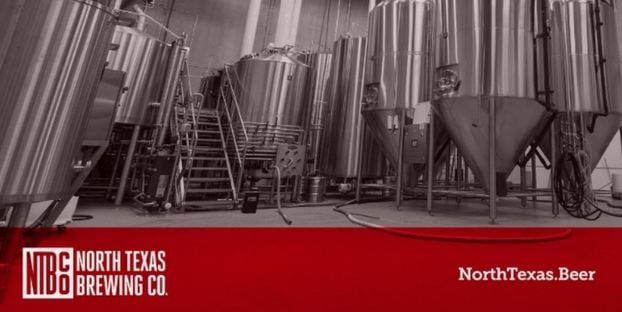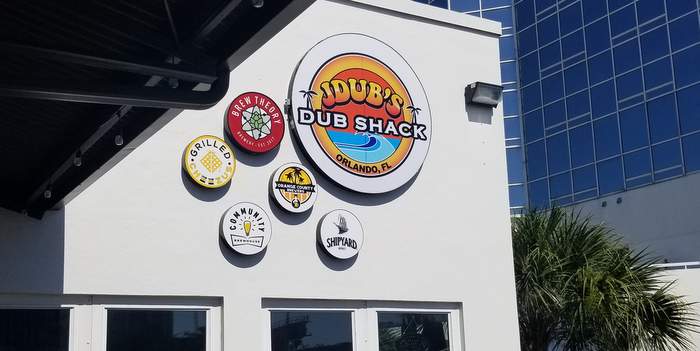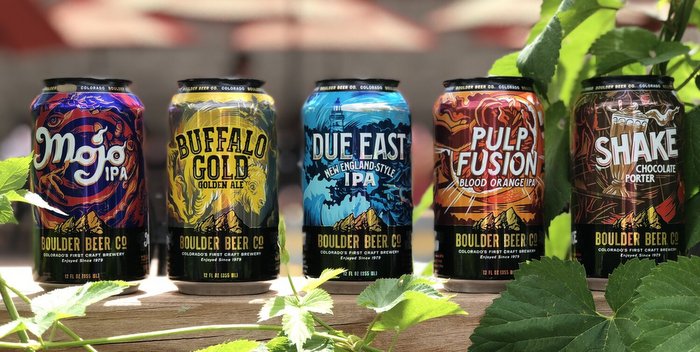
Today’s craft beer economy moves fast, and unfortunately, legislation doesn’t always keep up with or support this movement. Texas, for example, had a law on the books that prevented brewers who were not licensed in the state from contract brewing or entering into alternating proprietorship agreements. That changed in the 2013 legislative session, and new laws have now opened up more opportunities for craft brewers to partner with each other and grow their businesses. In a state that prides itself on being friendly to small businesses, Texas got this one right.
Though its a fairly new practice in Texas, contract brewing is nothing new to the beer industry at large. In fact, some of the most sought after brands like Heady Topper and Clown Shoes are widely known to be contract brewed. And craft beer fans appreciate these brands for what they are — really great beers. To some in the beer industry, contract brewing can be a dirty word. The argument is that it causes the brand to lack authenticity due to the fact that the beer is brewed in a different location, sometimes various locations. Others realize that contract brewing is simply a smart business decision and for some, the only way for their beer to actually reach the consumer. While brewing beer can certainly be romanticized and appreciated for the artistry that it requires to create really great brands, it should be noted that at the end of the day, brewing beer is a business, one that must support families, landlords, debt holders, shareholders and be able to sustain itself by generating revenue while minimizing costs. None of this of course sounds romantic to the aspiring brewer or the craft beer fanatic.
RELATED: Contract brewing vs. in-house brewing — we ask New Jersey’s Beach Haus brand
The last year has been a year of acquisitions and mergers in the brewing industry and if anything, only proves the volatility that currently exists in the market. Think about it. It took 80 years from the repeal of Prohibition in 1933 for the number of breweries operating in the United States to reach approximately 2,000, which brought us back to the pre-Prohibition era. But in only the last three years, that number has doubled. To say that we’re experiencing growth in our industry is an understatement. But that kind of rapid growth also means that the level of competition and the desire to gain (or simply retain) market share is increasing exponentially.
With that, we saw Ballast Point sell to Constellation Brands for $1 billion, who by the way stated in 2014 that they would never be interested in the craft beer market. Craft beer giants, Lagunitas and Firestone Walker both sold significant shares of their businesses to large global brewing enterprises. AB-InBev went on a shopping spree for brewers around the country in growing markets in addition to the controversial merger with SAB Miller. And beyond all of the buyouts, the likes of Dogfish Head, Odell, Southern Tier, Harpoon and Left Hand Brewing just to name a few, are taking in major capital investments from large private equity groups due to the need to expand their businesses. Lastly, we saw major cross-country expansion initiatives from Sierra Nevada, New Belgium and even Oskar Blues who has announced the construction of its newest brewing facility in Austin, Texas.
What does any of this have to do with contract brewing? Everything. Brewers and consumers alike should expect contract brewing to become more and more commonplace. The marketplace no longer allows for double digit growth year over year for a single brewery. In such a volatile market, investment is risky and capital for new breweries or expansion of existing facilities will be much harder to come by. Small brewers will be required to partner, share resources and operate smarter to continue to grow and brew the great brands that fans in their local communities have come to enjoy. Many larger craft brewers will continue to merge and sell in the effort to expand the reach of their distribution both regionally and nationwide. It will be increasingly important for smaller, local brewers to approach expansion more strategically and perhaps look for ways to grow their brands incrementally through contract brewing, foregoing the need for large infusions of cash.
RELATED: Contract and tenant brewing: Regulatory, licensing and tax considerations
North Texas Brewing Co. began business operations in Texas in December 2015 thanks to the rule changes and is already partnering with local brewers to help increase their distribution and achieve continued growth in the marketplace. The company is equipped to serve the small brewer with a 30-barrel brewhouse and cellar capacities at 60, 90 and 120 barrels. In the world of contract brewing, many brewers offer a minimum batch size of 100 barrels and some others upward of 500 to 1,000 barrels at a time. This presents a barrier to entry for small brewers who cannot sell that kind of volume in the required time frame and ensure that consumers are getting the freshest beer. In a world where SKUs are ever increasing and sell-thru rates are decreasing in some cases, small brewers who need more capacity also need options that help them scale their operations without out-scaling the sales of their brands. Quality is king.
This is why North Texas Brewing Company touts itself as a craft dedicated full service contract brewer. They boast an award winning staff, an onsite laboratory utilizing some of the latest technology in brewing science and a state of the art brewing facility powered by Newlands Systems. After just two months of operation, North Texas Brewing Company has taken on clients from North Texas, Austin and Houston. North Texas Brewing Co. is a wholly owned subsidiary of Grapevine Craft Brewery, LLC.





The case for contract brewing by North Texas Brewing Co. https://t.co/35RPvPn7fc
The case for (low volume) contract brewing by North Texas Brewing Co. https://t.co/F3uYRR1l4X via @craftbrewingbiz
#CraftBeer #CraftBrewing #Beer #BeerBiz The case for contract brewing by North Texas Brewing Co. https://t.co/APuPruCbCP
The case for contract brewing by North Texas Brewing Co. https://t.co/Y7gBaAf0hs
The case for contract brewing by North Texas Brewing Co. https://t.co/oJtta66v6o #beer #feedly